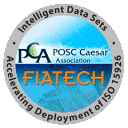| Version 1 (modified by jbourne, 15 years ago) |
|---|
TracNav menu
-
RDS/WIP project
- RDS/WIP Introduction
-
RDS/WIP World View...
- RDS/WIP Sample Queries
- RDS/WIP Staging Diagrams
- RDS/WIP 1.0 Plan
- RDS/WIP 1.0 Testing
- RDS/WIP 1.0 Process
- RDS/WIP 1.0 Inventory
- RDS/WIP 2.0 Plan
- RDS/WIP ID Generator
- RDS/WIP Domain Proposal
- RDS/WIP Requirements Table
- RDS/WIP Use Case: Discrete Editing
- RDS/WIP Use Case: CSV Upload
- RDS/WIP 1.0 General Use Cases
- RDS/WIP 2.0 General Use Cases
- RDS/WIP ISO 15926 Template Definitions
- RDS/WIP OWL/RDF Definition
- RDS/WIP OWL/RDF Project Plan
- RDS/WIP Forums
-
External
- RDS/WIP Use Case: Bulk Upload

POSC-Caesar FIATECH IDS-ADI Projects
Intelligent Data Sets Accelerating Deployment of ISO15926
Realizing Open Information Interoperability
RDS/WIP 1.0 Process
This page describes the process by the RDS/WIP 1.0 is used to effect the goals of reference data publishing and distribution.
Overview
Publishing Overview
Distribution Overview
Publishing Detail
Supported Submission Formats
QMXF
QMXF is an XML format that allows representation of template and class definitions. QMXF has several important features in relation to the reference data submission process:
- it constrains the data that can be submitted to class or template definitions;
- it requires the representation of specific meta-data;
- it provides reasonable defaults for many options;
- it insulates the definition from the precise template instantiation;
- it insulates the definition from the precise OWL/RDF;
- it has a published XSL transform into template instances.
QMXF is useful in that it provides the submitter with distance from instantiated templates and OWL/RDF. This reduces the number of formats and types of technology with which a submitter must be familiar.
Also, since the exact mapping to template instances is remote from the QMXF content, it allows both the template instancing process and the OWL/RDF representation to change, without the need to redefine the input class and template definitions. This feature is seen as being important until ISO 15926 parts 7, 8 and 9 are published.
QXF
QXF is an XML format that allows representation of only template instances. Since all ISO 15926 data (including reference data) is representable as instances of templates, this is sufficient to describe all reference data. QXF has several important features with respect to the reference data publication:
- it constrains submitted data to template instances;
- any template instance has only one consistent form;
- it is flat and non-nested;
- it insulates template instances from the precise OWL/RDF.
These properies allow QXF to be used for easy eye-verification of template instance construction, since there is only one single representation for any specific template instance.
Also, since the exact mapping to OWL/RDF is remote from the QXF content, it allows the OWL/RDF representation to change, without the need to redefine input template instances. This feature is seen as being important until ISO 15926 parts 7, 8 and 9 are published.
OWL/RDF
OWL/RDF is an ontology language (OWL) expressed in terms of a kind of binary relation abstraction (RDF). Given that ISO 15926 part 2 is an ontology expressed in terms of binary relations, OWL/RDF is a useful means of communicating ISO 15926 information. Similarly, OWL/RDF usage has conventions for the representation of n-ary relationships, which fit well with template instances and ISO 15926 part 7.
In the context of reference data publishing, RDF has several important features:
- it identifies concepts primarily with full URIs;
- it has well-supported, freely-available tools on several platforms;
- it has a well-supported, web-oriented query language, SPARQL;
- it is the subject of robust standards process in the W3C.
Together, these features make RDF a potentially useful means for publishing and distributing reference data for any model reducible to relationships.
In the context of reference data publishing for ISO 15926, OWL has several important features:
- it is based on RDF;
- it is founded in formal logics;
- it is the subject of robust standards process in the W3C;
- it is leveraged by the proposed ISO 15926 parts 8 and 9.
These features together make it a natural part of the reference data landscape for ISO 15926.
RDF has several different exchange representations: XML, N3 and N-TRIPLE. All of these formats are acceptable inputs to the submission process. OWL has an exchange representation of its own: OWLX - this is not currently supported as an acceptable input to the submission process.
